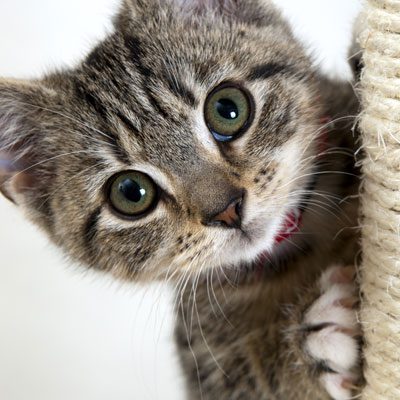The majority of cats won’t go out of their way to eat plants, but there are a percentage that will. Since some plants are toxic to animals, and even non-toxic varieties may have been sprayed with pesticides or other chemicals, it’s important to nip this behavior in the bud. Learn how below from your Chesapeake vet.
Visit the Vet
First off, it’s a good idea to set up an appointment with your vet if your cat seems to be chewing on plants regularly. Sometimes, cats can turn to eating plants if they’re not getting the proper nutrients from their diet. Even if nothing is wrong, your veterinarian can advise you on further ways to correct your cat’s behavior, like those found below.
Restrict Access to Plants
It may be easiest simply to restrict your cat’s access to the plants she likes to nibble. Put them in a room where she can’t get to, or remove them from your house entirely. If you have garden plants in the backyard, don’t let your cat get into or near the garden.
Use Deterrents
Taste deterrents can be sprayed on plants, making a cat think twice about chowing down on them. There are other types of deterrents, too—a particularly popular one shoots a short burst of compressed air when a cat passes by, startling them into avoiding the area entirely. Ask your vet for more information on these products.
Train Cat to Avoid Plants
You can also try training your cat to steer clear of the plant life. Every time your cat gets near a plant, clap your hands and scold your pet gently. Reward your cat with a treat when she goes away and ignores the plants. It can be difficult to keep this training up over time, especially if you’re not home during the day, but prolonged training usually works.
Provide Other Options
Some cats nibble on plants because they don’t have anything better to chew on. Most cats will prefer a chew toy rather than a plant, so make sure your cat is outfitted with the toys she needs to get out her natural chewing instincts. Ask your Chesapeake vet for a recommendation on good toys.









